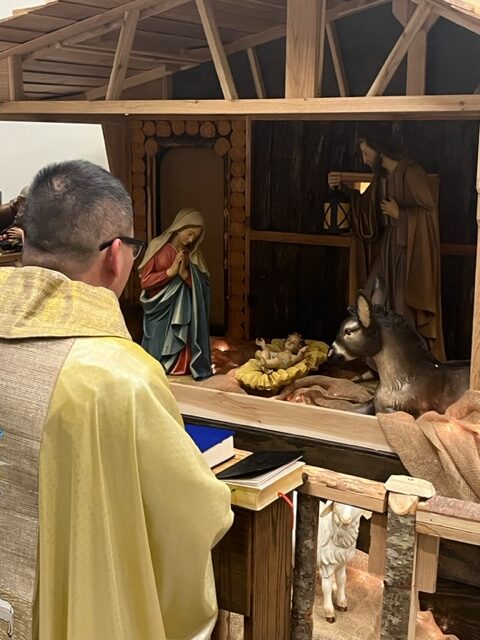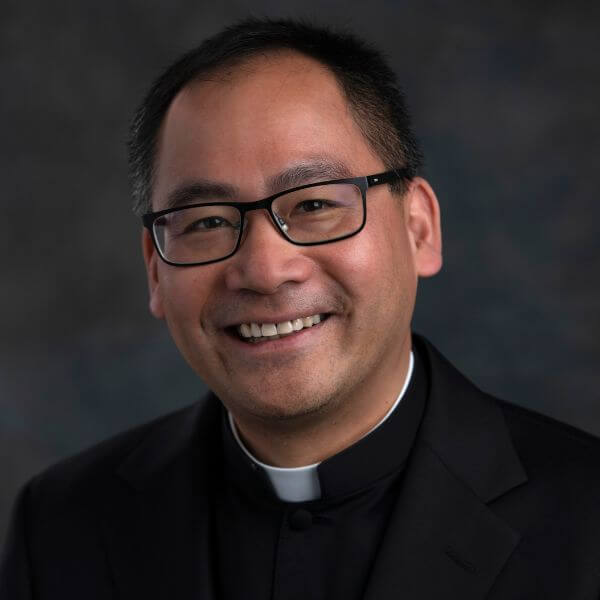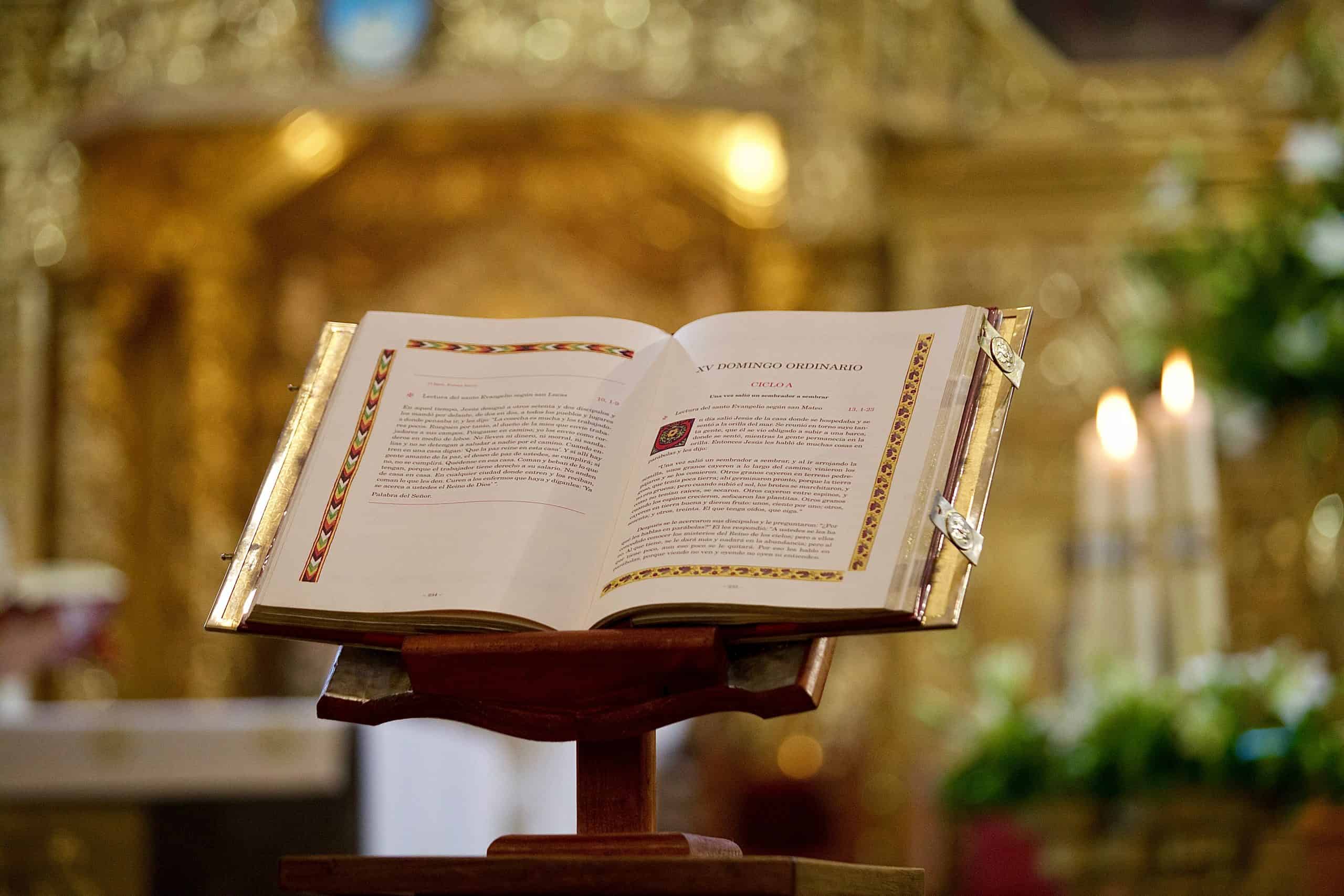
Christmas
The Nativity of the Lord (Christmas) Mass During the Night
 Speaker: Fr. Lam Le
Speaker: Fr. Lam Le
Message:
She . . . laid him in a manger, because there was no room for them in the inn (Lk 2:6-7)
Last Thursday afternoon while the people in our part of the world were preparing their families for the blizzard, I went around to celebrate the Anointing of the Sick and to bring Holy Communion to the homebound. One parishioner made a very profound comment after receiving the Lord; and her comment helps us to reflect on the meaning of Christmas: “Father, I am very grateful to you and to the deacon of the parish, seeing to it that I receive Holy Communion every week. I do not know if this is the right thing for me to say, but not receiving the Eucharist means dying.” I assured her that what she said is true!
The above truth unfolds to us in the Gospel for the Mass During the Night of Christmas, specifically in these verses: “While they were there, the time came for her to have her child, and she gave birth to her firstborn son. She wrapped him in swaddling clothes and laid him in a manger, because there was no room for them in the inn.” (Lk 2:6-7). On this 2022 Christmas, I invite all of you to meditate on the manger and the inn.
First, Mary laid him in a manger. The manger was a feeding trough for animals. The Church always regarded this detail as an allusion to the text in the Old Testament: “An ox knows its owner, and an ass, its master’s manger; But Israel does not know, my people has not understood” (Is 1:3). Mary laid Jesus in the manger signifies that the Eternal Word made flesh to be Mary’s “firstborn son,” to become our food. The mystery of Jesus’ birth is celebrated every year at Christmas, but in a sense, we do so at every celebration of the Mass. St. Gregory the Great is one of the many saints who mentioned that since Bethlehem in Hebrews means “house of bread,” it was a fitting birthplace for Jesus, who in the Eucharist, as Jn 6:51 indicates, becomes “our living bread” (See St. Gregory the Great, Forty Gospel Homilies, trans. David Hurst, Kalamazoo, MI: Cistercian Publications, 1990). As the prophet Isaiah pointed out, Israel does not know the Lord’s manger, and do we, the members of the Church, the new Israel, truly know our Lord’s manger?
Second, the birth of Jesus occurred where the animals were kept because there was no room in the for them in the inn. The Greek word of inn is katalyma. This refers to a place of lodging for travelers (Ex 4:24 LXX). In the Gospel according to Luke, however, the word appears only one other time, describing the “guest room,” where Jesus eats the Last Supper (Lk 22:11) or where the Lord instituted the Sacrament of Holy Eucharist. The Evangelist’s choice of words, draws us to the fundamental truth: Every time you and I participate in the celebration of the Mass, we celebrate Christmas, because the very flesh and blood that Jesus took from the womb of the Blessed Virgin Mary is now actualized on the altar.
During this Holy Season, we note that the creche is set up in churches, chapels, oratories, and homes. We often see these two animals around the manger: the ox and the donkey. In the biblical world, these two animals were not associated with great intelligence. Despite that, they knew where the manger was so they could be fed. Gazing upon the Nativity scene is an invitation: We are created in the “image of God” (Gn. 1:27) and must do better in knowing the Lord’s manger. It is the altar of the Church where bread and wine are consecrated to become the Body and Blood of the Lord. And it is from the altar that we are fed with the “Bread of Life” (Jn 6:35).
Laid in the manger, Christ became our food. Therefore, we kneel on this day during the Creed at the word, “and by the Holy Spirit was incarnate;” and we kneel again in adoration after receiving the Lord in Holy Communion. May our celebration of Christ’s Birth, Christmas, this year be a recognition of Christ our spiritual food for those who have not taken the Sunday Mass seriously, and a further comprehension of the Sacred Mysteries for those who have frequented the great Sacrament of the Church.
What the simple widow said to me last Thursday is absolutely accurate: without Holy Communion we die. Let us pray that all know more and love better the Lord’s manger during Christmas. Amen.
Scriptural Readings: Reading 1 Is 9:1-6; Responsorial Psalm Ps 96: 1-2, 2-3, 11-12, 13; Reading 2 Ti 2:11-14; Alleluia Lk 2:10-11; Gospel Lk 2:1-14

